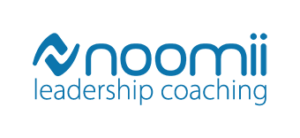The Essential Guide To Find Life Coach In 2025
Imagine you could unlock your full potential and reach your biggest goals in 2025 with expert support. The journey to find life coach guidance can be transformative, but knowing where to start is crucial. This essential guide will give you the knowledge, strategies, and confidence to find life coach options tailored to your needs in 2025. We will demystify the process, reveal what truly matters, and offer actionable steps for success. Ready to take control and thrive?
Understanding Life Coaching in 2025
Unlocking your potential in 2025 starts with understanding what life coaching truly is. If you want to find life coach services that actually deliver, you need clarity on their core role and the impact they can have on your journey.

The Role and Impact of Life Coaches
A life coach is a professional who helps clients set meaningful goals, shift their mindset, and stay accountable. When you try to find life coach support, remember that coaching is not therapy, mentoring, or consulting. While therapy addresses past trauma and mentoring offers advice based on experience, coaching is future-focused and action-oriented.
Industry demand for life coaching is surging. According to recent Life Coaching Industry Statistics 2025, satisfaction rates remain high, with over 80 percent of clients reporting positive changes. Success stories range from career breakthroughs to improved relationships.
Common misconceptions include thinking coaching is only for those in crisis or that results are instant. In reality, a coach’s support is invaluable during complex transitions, providing structure, encouragement, and a roadmap for change.
Key Trends Shaping Life Coaching in 2025
The landscape for those who want to find life coach professionals is evolving rapidly. Virtual and AI-powered coaching platforms now make it possible to connect with the right expert from anywhere in the world. Specialization is on the rise, with coaches focusing on areas like health, relationships, executive leadership, or life transitions.
Coaching in 2025 is more data-driven than ever. Advanced assessments and digital tools, such as the Wheel of Life, help clients self-assess and track progress. Global accessibility means multicultural and multilingual coaching options are standard.
Online sessions have grown by 60 percent, making coaching more accessible. These trends ensure you can find life coach services tailored to your exact needs, no matter your location or background.
The Benefits of Working with a Life Coach
Choosing to find life coach guidance offers tangible benefits. Clients report greater clarity in their goals, stronger accountability, and higher follow-through rates. Coaches design personalized strategies that help you overcome obstacles and achieve measurable, lasting progress.
Testimonial data shows that 85 percent of coaching clients experience increased life satisfaction. Many cite a high return on investment, both personally and professionally. When you invest in a coach, you’re investing in sustainable change and a proven path to growth.
A coach doesn’t just help you set goals—they make sure you reach them, supporting you every step of the way.
Who Can Benefit from Life Coaching?
If you’re considering whether to find life coach support, know that coaching is for everyone. It benefits people facing major life transitions—career changes, relocations, or relationship shifts. Professionals seeking advancement or work-life balance also see great results.
Coaching is effective for those struggling with motivation, confidence, or direction. Real-life scenarios include a young professional navigating a new role, or someone rebuilding after a setback.
Life coaching is inclusive, serving all ages and backgrounds. Whether you want to proactively grow or respond to a challenge, you’ll find value in working with a coach.
Types of Life Coaches and Their Specialties
Navigating the journey to find life coach support starts with understanding the wide array of coaching specialties available today. In 2025, life coaching is more diverse and specialized than ever, offering tailored solutions for every personal and professional need.

Overview of Popular Coaching Specialties
To find life coach expertise that matches your goals, it’s helpful to explore the most in-demand coaching specialties:
- Relationship coaching: Improves communication and builds healthy connections. For example, a couple struggling with conflict may work with a coach to rebuild trust.
- Financial coaching: Focuses on budgeting, mindset, and long-term planning. A young professional might partner with a coach to eliminate debt and set up investments.
- Business and executive coaching: Enhances leadership, entrepreneurship, and team dynamics. Many executives rely on executive and leadership coach profiles to develop vision and manage organizational change.
- Health and wellness coaching: Addresses physical, mental, and emotional well-being. A client recovering from burnout could use wellness coaching for sustainable routines.
- Recovery coaching: Supports those facing addiction, trauma, or major life setbacks.
- Career coaching: Guides job transitions, interview skills, and professional growth.
- Transitional coaching: Helps navigate significant life changes, such as relocation or retirement.
Each specialty offers unique strategies, making it easier to find life coach services specifically tailored to your circumstances.
How to Match Coaching Specialties to Your Needs
The smartest way to find life coach guidance is through honest self-assessment. Identify your primary area of growth—whether it’s advancing your career, healing relationships, or boosting wellness. Tools like the “Wheel of Life” can help you visualize where you need the most support.
Specialized coaches deliver targeted results by focusing their expertise on your unique challenges. For instance, if you seek a career change, a career coach will have proven frameworks for job search and interview prep. Some coaches offer multidisciplinary approaches, blending skills from several specialties to address complex needs.
In 2025, the most requested specialties are career, executive, and wellness coaching. To find life coach solutions that truly fit, align your choice with your specific goals for maximum impact.
Certifications, Training, and Standards in 2025
When you find life coach candidates, verifying their credentials is essential. Leading certifications like ICF (International Coach Federation) and NLP (Neuro-Linguistic Programming) are highly respected. Many top coaches pursue ongoing education to stay ahead of trends.
| Certification | Recognized By | Focus Area |
|---|---|---|
| ICF | Global | General coaching |
| NLP | Global | Communication |
| EMCC | Europe | Executive coaching |
Certified coaches consistently report higher client satisfaction and better outcomes. In fact, a growing percentage of clients prefer certified professionals for their trustworthiness and expertise. Comparing certified versus non-certified coaches, studies show that certification often leads to improved accountability and ethical standards. Always check credentials before you find life coach partners.
Niche and Emerging Coaching Fields
The landscape to find life coach services is rapidly evolving. Niche fields like mindfulness, digital wellness, and diversity and inclusion coaching are on the rise. AI-powered and hybrid coaching models are also gaining traction, providing clients with new ways to access support.
For example, some coaches now specialize in post-pandemic resilience or adapting to remote work, addressing unique challenges of 2025. These emerging fields offer innovative solutions for individuals facing modern stressors.
As you find life coach options, consider how these new specialties might address your needs.
How to Identify Your Coaching Needs and Goals
Before you set out to find life coach who matches your dreams, take time to clarify what you truly want to achieve. A thoughtful approach will help you make the most of your coaching journey, ensuring every session is focused and productive.

Self-Reflection and Assessment Tools
Self-reflection is the first crucial step when you want to find life coach who can truly help you grow. Start by listing your top priorities, values, and areas where you feel stuck or unfulfilled. Digital self-assessment tools, such as the Wheel of Life or values inventories, can offer a holistic view of your current satisfaction across various aspects of life.
Try this process: jot down your roles (parent, leader, friend, etc.), rate your satisfaction in each, and highlight where you want to see change. Honest self-appraisal brings clarity to your motivations and reveals where a coach’s expertise could be most impactful. Remember, the clearer your self-understanding, the better your partnership will be.
Setting Clear, Measurable Objectives
Defining what success looks like is foundational before you find life coach who fits your needs. Use the SMART goal framework: make your objectives Specific, Measurable, Achievable, Relevant, and Time-bound.
For example, instead of saying “I want to be happier at work,” state “I will secure a promotion by Q3 2025 by leading two new projects.” Coaches help refine and prioritize these ambitions, so come prepared with ideas. According to Coaching strategies for 2025, clients who set clear goals see significantly higher success rates than those with vague intentions. Precise objectives enable your coach to design targeted strategies for real progress.
Recognizing Barriers and Growth Opportunities
To successfully find life coach who can unlock your potential, you must identify what holds you back. This means looking at both internal factors, such as limiting beliefs or self-doubt, and external barriers like lack of resources or support.
Common obstacles include fear of failure, procrastination, or unclear boundaries in work or relationships. On the other hand, these challenges often point to your greatest growth opportunities. A skilled coach will help you reframe setbacks as stepping stones, guiding you to actionable solutions and breakthrough moments. Every barrier you identify is a chance to move closer to your goals.
When to Seek a Life Coach vs. Other Support
It’s important to know when the time is right to find life coach and when another type of support may serve you better. Coaching focuses on forward movement, goal achievement, and personal accountability, while therapy addresses mental health and past trauma.
If you’re seeking clarity, motivation, or strategies for change, coaching is ideal. For example, professionals feeling stuck in their career or individuals navigating major transitions often benefit most from coaching. Trends show that more people now choose coaches for proactive growth, not just reactive problem-solving.
Step-by-Step Guide: How to Find the Right Life Coach in 2025
Ready to take the first step? This comprehensive guide will walk you through exactly how to find life coach support that matches your unique goals and preferences in 2025. Follow these eight proven steps to ensure you make a confident, informed decision.

Step 1: Define Your Criteria and Preferences
Before you begin to find life coach options, clarify your expectations. Decide if you prefer virtual or in-person sessions, group or one-on-one formats. List non-negotiables, such as preferred communication style, specific experience, or cultural understanding.
For example, some clients value a coach’s ability to challenge their thinking, while others prioritize empathy or shared lived experience. Create a checklist of your ideal coach’s qualities. Remember, personal fit matters as much as credentials when you find life coach candidates. Consider language needs and time zones to ensure smooth communication.
Step 2: Research and Shortlist Potential Coaches
To efficiently find life coach professionals, explore reputable directories, social media, and professional associations. Platforms like CoachCompare and LinkedIn make it easy to filter by specialty, location, and credentials.
Ask friends or colleagues for referrals, and read bios and testimonials to get a sense of each coach’s style. The number of online coaching platforms has grown substantially by 2025, giving you more options than ever. A diverse search approach helps you find life coach matches that truly align with your vision.
Step 3: Evaluate Credentials, Experience, and Approach
Next, scrutinize each coach’s qualifications as you find life coach candidates. Verify certifications, such as ICF or NLP credentials, and look for evidence of ongoing professional development.
Review case studies and client success stories to see their real-world impact. Ask questions during initial contact: What is their coaching philosophy? Have they helped clients with similar goals? Experience in your specific area is crucial when you find life coach support tailored to your needs.
Step 4: Schedule Discovery Sessions or Consultations
Book discovery calls with your top choices to find life coach compatibility. These sessions let you assess chemistry, clarify goals, and ask questions in real time.
Expect open dialogue about your needs, the coaching process, and mutual expectations. Watch for red flags like poor listening or vague answers. Research shows that clients who have initial consultations are more likely to find life coach relationships that lead to lasting success.
Step 5: Compare Coaching Styles and Systems
Coaches use various frameworks, so compare their approaches as you find life coach options. Some follow structured systems like Tony Robbins’ Results Coaching, while others offer a more flexible, client-led style.
Ask about their preferred methodologies and how they measure progress. Proven systems can offer predictability, but flexibility is valuable if your needs evolve. Pick a coach whose methods resonate and support the way you want to grow as you find life coach guidance.
Step 6: Review Testimonials, Case Studies, and Success Rates
Authentic feedback is vital when you find life coach candidates. Read testimonials on coaches’ websites, social profiles, and directories. Look for specific results and long-term changes, not just generic praise.
Review case studies that detail obstacles overcome and measurable progress achieved. According to recent Life Coaching Industry Statistics 2025, client satisfaction rates remain high when clients conduct thorough research. Social proof builds confidence as you find life coach support.
Step 7: Make Your Selection and Set Up a Trial Period
After narrowing your options, select your preferred coach and agree on a trial period. This low-risk approach lets you find life coach fit through 1 to 3 initial sessions.
Discuss expectations, logistics, and investment upfront. Be open to honest feedback and ready to switch if the match does not feel right. A trial run helps you find life coach support that truly accelerates your progress, while also protecting your investment.
Step 8: Establish a Coaching Agreement and Begin Your Journey
Finalize your choice by signing a clear coaching agreement. This document should outline goals, confidentiality, schedule, and fees. Sample agreements are often available to review.
A formal agreement fosters accountability and professionalism, increasing the likelihood of long-term success. Clients with a written contract report higher retention and satisfaction rates.
Evaluating Life Coaching Platforms, Tools, and Resources
Evaluating the right resources and platforms is crucial when you want to find life coach options that match your needs in 2025. Today’s landscape offers more tools than ever, making your search both easier and more effective.
Digital Platforms and Directories for Finding Coaches
The first step for many as they find life coach candidates is exploring online directories and matching platforms. Sites like CoachCompare and Paperbell have streamlined the process, allowing users to filter coaches by specialty, location, and coaching style. According to the Life Coaching Services Market Report 2025, global usage of these platforms soared in recent years, with more clients reporting successful matches and higher satisfaction rates.
To use a directory effectively, start by setting your filters for key preferences, then review coach profiles, testimonials, and credentials. These platforms simplify vetting, save time, and increase your chances of finding a coach who truly fits your goals.
Social Media and Community Recommendations
Social media has become a powerful tool to find life coach options that resonate with your values and communication style. Platforms like LinkedIn, Instagram, and Facebook groups allow you to interact directly with coaches, consume their content, and see real-time engagement from their communities.
By following coaches’ posts, joining coaching-related groups, and reading peer reviews, you gain authentic insights into a coach’s approach and reputation. Community feedback offers transparency and confidence, helping you make informed decisions before initiating direct contact.
Assessments, Tools, and Resources for Self-Discovery
Before you find life coach services that suit your needs, digital self-assessment tools can clarify your goals and priorities. Tools like the Wheel of Life, values inventories, and personality assessments are widely accessible online, often for free or as part of coaching platforms.
Using these resources helps you enter the coaching process with clearer intentions. In 2025, over 70% of new coaching clients reportedly used at least one self-discovery tool before their first session, leading to more focused and productive outcomes. For those seeking personal transformation, personal growth coaching London offers a range of resources to kickstart your journey.
Investment, Pricing, and ROI Considerations
Understanding the investment when you find life coach services is essential for long-term satisfaction. The average cost of life coaching in 2025 varies by coach experience, specialty, and session length, with most clients considering it a high-value investment due to measurable progress and personal growth.
To calculate ROI, compare your progress toward goals, increased satisfaction, and the skills acquired during coaching. Industry reports show that clients who set clear objectives and commit to a structured coaching relationship see the highest returns.
Red Flags and Best Practices When Choosing a Life Coach
Choosing to find life coach support can be transformative, but it is essential to approach the process with a discerning eye. Not every coach is equally qualified or the right fit for your journey. Recognizing warning signs and following best practices ensures your investment leads to real growth and positive outcomes.
Warning Signs to Avoid
When you find life coach candidates, watch out for specific red flags that may indicate an unqualified or mismatched coach. These include:
- Lack of recognized credentials or vague qualification claims
- Promising fast transformations or guaranteed results
- Poor communication skills, such as interrupting or failing to listen
- Avoiding your questions or providing unclear answers
Reviewing competitor testimonials and industry reports, such as the U.S. Life Coaching Market Report, reveals that thorough vetting is essential. Always check references and reviews to protect your investment and ensure a positive coaching experience.
Questions to Ask Before Committing
Before you commit to a coach, it is critical to ask targeted questions during discovery calls. This step is a cornerstone when you find life coach professionals who align with your needs. Essential questions include:
- What certifications and training do you hold?
- Can you share client success stories relevant to my goals?
- What is your coaching process and preferred methodology?
- How do you measure progress?
- What are your expectations of me as a client?
- How do you handle confidentiality?
- What is your availability and communication policy?
- What is your experience with clients in situations similar to mine?
You have every right to interview multiple coaches before making a decision. Direct communication helps clarify expectations and ensures you feel confident moving forward.
Ensuring Accountability and Progress
Accountability is a defining factor when you find life coach partners who drive results. Set up regular check-ins and review sessions to track your progress. Many coaches use clear KPIs, such as:
| Accountability Metric | Description | Review Frequency |
|---|---|---|
| Goal Attainment | % of milestones achieved | Monthly |
| Session Feedback | Client satisfaction rating | After each |
| Action Steps | Tasks completed | Weekly |
Research shows that clients with structured progress reviews experience higher satisfaction and outcomes. Continually evaluating your journey maximizes the value of your coaching relationship.
Building a Sustainable Coaching Relationship
True success when you find life coach support comes from a healthy, long-term partnership based on trust, respect, and openness. Give and receive feedback regularly to strengthen your connection with your coach. Look for signs of a productive relationship, such as mutual accountability, honest communication, and clear boundaries.
Remember, coaching is a continual investment in your growth. If you ever feel the fit is not right, be open to exploring new options. For more guidance on maximizing accountability in coaching, visit Accountability Now.




Leave a Reply
Want to join the discussion?Feel free to contribute!